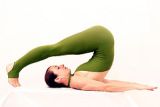The Key Elements Of Pilates

Concentration:
If the brain is concentrated on the effort, the muscles respond better to a training stumulus. The signal is sent out to the muscles via the brain to contract. So, it is important that you concentrate on the work you expect the muscle to perform. You should be in a proper frame of mind and in the right mood to exercise and not get distracted. Avoid intrusive sounds and disturbances that will take your mind off what you want to do. Try to be mentally prepared and focus on your body and the work that it will be doing.
Control:
Whichever movement you do, it should be done with absolute control and slowly. The faster you do anything, the less actual muscle mass you will use to do the exercise. The only thing you will be using is momentum. Most of the Pilate movements are not static, they should be in continuous form, controlled and precise.
Flow:
Pilate exercises are not repetitive of a conventional exercise. Try to link one exercise to the other in a flow so there will be steady flow of energy throughout the session and continuous. There is no need to start and stop in between exercises, but it should flow like a turning wheel. Maintain a steady flow of energy, keeping movements graceful and fluid.
Relaxation:
Pilates is a gradual re-education of the body. If you want to gain from it, do not create tension which is unnecessary. If it happens then there would be an imbalance in the body, which is the very thing you are trying to cure. Take care of tension in the neck and jaw, but it can be anywhere, maybe in the feet even. If you give yourself a mental check up and come to know where exactly you hold tension, then half the battle is already won.
Adherence:
For an exercise programme to work, you have to do it first. Make this programme a part of your life and your daily routine just like your other normal day to day activities. Just like personal hygiene is equally an important factor in life, taking care of physical aspects of your life is important too.